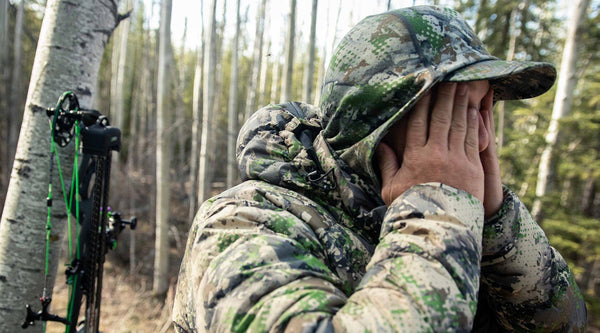Backcountry Safety And Taking Care Of Your Body
Oct 21, 2021
What's going on? It's Andrew Schubert and I'm here to talk to you about backcountry safety and how to take care of your body on a backcountry hunt.
Over the last couple of years with the help of YouTube, social media, and different social influencers, the idea of a backcountry hunt has become very popular among hunters nationwide and worldwide. And it's understandable. It's an amazing thing. You could push your body to the limits and you are truly out there at the mercy of Mother Nature, living among the creatures we’re hunting.
I get it. But there are some things to think about, on your backcountry hunt that can greatly influence your outcome not only as a hunter - or as a successful hunter - but also your safety and your well-being.
Don't Be Caught Unprepared In The Backcountry
SKRE Gear® Rocky Mountain Bundle provides backcountry hunters with gear that covers most of the hunting season.
Shop Rocky Mountain Bundle
Emergency Communication
Most backcountry hunts are going to be at least 5 miles away from your truck, from your trailhead, from whatever. We're getting back in there quite a ways, right? So my number one most important thing for backcountry safety is a means of communicating with the outside world in case of an emergency. There's several different satellite communication devices. I would recommend spending some money on that before I worry about anything else. The most important thing is that if something happens, you're going to need to be able to get life-flighted out of there. And if you don't have the means to reach the outside world, you're probably going to die on the mountain side. And nobody wants that, right?
After that, we can start working on everything else for our backcountry hunt. You're going to be carrying a lot of weight on your back. A lot more weight than you normally would on a day trip. You need to be thinking in terms of how to shed weight and how to cut grams off of your pack, just to make yourself more efficient.
Nutrition
Nutrition is going to be huge for backcountry safety, but it has to be very well thought out. Because if you don't think it out, you're going to have a heavy pack and it's going to drive you into the ground much faster. So a good rule of thumb would be to pack very nutrient-dense foods. You're looking for roughly a hundred calories per ounce of whatever food you're bringing. I still focus on a very protein-rich diet. I'm still aiming for about a 190 grams of protein, which is is one gram-ish, maybe a little more than one gram per pound of body weight on me. I focus on a protein-rich diet and then I will supplement the rest of my calories with fats and carbs. Whichever mix I can make work. I thrive on a high-carb diet. I perform very well with high-carbs. Not everybody's that way, but I do. But to get the biggest bang for the buck for weight, you want high-fat foods. The more fat you have, the more calories you have at a lighter weight. Just do not overlook your carbs and make sure you're packing carbs. I lean heavily on Gummy Bears during backcountry and extended hikes. There's some sugar and there's plenty of carbs and they are light and delicious. They're a good source of carbs. But just be paying attention to getting as much nutrition as you can, for the least amount of weight in the backcountry.
Listen To Your Body
Now, I want to talk to you about listening to your body. A lot of people are going to venture off into the backcountry this year for the first time. They will not have though about backcountry safety, they will be completely unprepared, and it will be dangerous for them. We need to listen to our bodies. There is a point where through you being stubborn and not listening to yourself, you're going to put yourself in harms way. It's normal to feel tired. It's normal to get out of breath. It's normal to feel just a little bit run down. But when you start feeling that fatigue, you need to stop and you need to eat and you need to evaluate yourself and see if you're in a position to continue. Because the further you go back into the backcountry, the harder it is to get back out. If you get back in there and you are completely defeated and you can't get back out, that puts your health at risk and it puts everybody else's health at risk that has to come rescue you. So listen to your body! If you start to feel fatigued, I would recommend immediately eating. And if you do not feel better, I would recommend turning around and getting closer to your truck. Backcountry hunting is not for everybody. And that's okay. That's completely okay and completely understandable. But you need to listen to your body. When you are that far away from civilization, you've got to take care of yourself.




